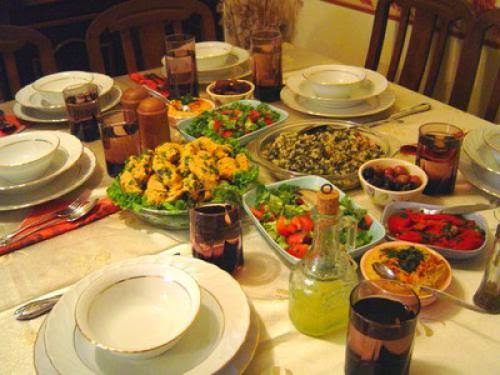
The month of August is the month of ramadan this year. For the French ruling elite it is a national holiday and a time for celebrating diversity and multiculturalism, a time for discarding worn out notions of patriotism and national pride, a time for re-interpreting the 1905 law separating Church and State, and a time for blanking out on France's Christian heritage. But for millions of Frenchmen it is one more jarring example of the gulf that separates them from their leaders.
In #137 of his weekly newsletter Yves Daoudal explains why ramadan cannot be compared to Lent:
On August 1 there were no fewer than four articles about ramadan in... La Croix (a Catholic journal). And at the internet site Le Progr`es, under religion, nine articles out of ten were devoted to ramadan. For several years now ramadan has been a major event in France. At least in the world of the media and paramedia. By paramedia I mean those who live in the orbit of the media and who believe that that virtual world is the real world. Among them, a part of the clergy and even some bishops.
This world of the media and paramedia has totally assimilated the code of dhimmitude. In a Muslim country, in order not to have headaches, minority communities must congratulate the Muslims and show great sympathy towards them in this period of self-denial and prayer. In France, Muslims are still very much in the minority, but the media and paramedia act as if they were the majority. "When France Celebrates Ramadan" was the headline at Lib'eration, in huge letters, last year.
The media and paramedia, i.e., the ruling caste, openly promotes Islam, while the overwhelming majority of that caste rejects all religion. These are the same people who find the Catholic rites old-fashioned, but who find ramadan just great.
But the last straw is when the bishops get into the act. Bishops who have never in their lives observed Lent and who congratulate the Muslims on their ramadan.
Note: I'm surprised. Are there bishops who have never observed Lent?
The situation would be comical if it weren't so sad. The Latin Church long ago abandoned the obligation of the Lenten fast, and the new liturgy did away with the sermons that spoke of it (these were most of the sermons, and there are two of them per day), even though the fast is a commandment of Christ and a necessity for spiritual life, as all the saints know. Today we see that the Lenten fast is back in style in certain sectors of the Church, but disconnected from the liturgical year, which is an absurdity.
Ramadan is not only a bad copy of Lent, it is a perversion of Lent (just as many pages of the Koran are a perversion of the Bible, etc...) The symbolism of the Lenten fast is, notably, the purification of the soul through a reduction of food for the body (because a fast purifies the body). But ramadan is the opposite. If you fast during the day, in the evening you pig out (and you spend the day digesting). In Muslim countries, food consumption increases by 30% during ramadan. (This is why all the supermarket chains have special sections for ramadan. If Lent were observed for forty days by Catholics, there would be no special sections for the very good reason that Lent is a real privation). The orgy of eating is such that hospitals are besieged by patients who show the whole gamut of pathologies linked to the overeating of fats, sugars, etc..., from simple indigestion to heart attacks. And there are special television programs that ask people to be moderate and to provide recipes for lighter meals. In this time of dictatorship over our health, ramadan should be forbidden...
Rules on abstinence and fasting in the Roman Catholic Church are rather complex, as this Wikipedia page shows.
At the top, the table is set for iftar, the ramadan meal that begins at sunset. But besides the evening meal there is a pre-dawn meal called suhoor. So ramadan is not a fast at all. Two meals are eaten, in a 24-hour period, which is not far from normal. And the evening meal is often copious, sometimes extending into the night.
The painting below by Pieter Bruegel the Elder depicts the Fight between Carnival and Lent. At Olga's Gallery there's the following explanation:
This painting takes as its subject the traditional annual carnival, which was held in Flanders in the week before lent. A half-religious, half-secular festival, it provided an excuse for excesses of drinking and sex: contemporary moralists condemned it as the devil's week.
1559.
Oil on panel. Kunsthistorisches Museum, Vienna, Austria.
And contemporary moralists today condemn anyone who condemns the presence of Islam in France or the gluttony of the nightly feast of iftar.
There's a more detailed analysis of Bruegel's painting at this Wikipedia page.







